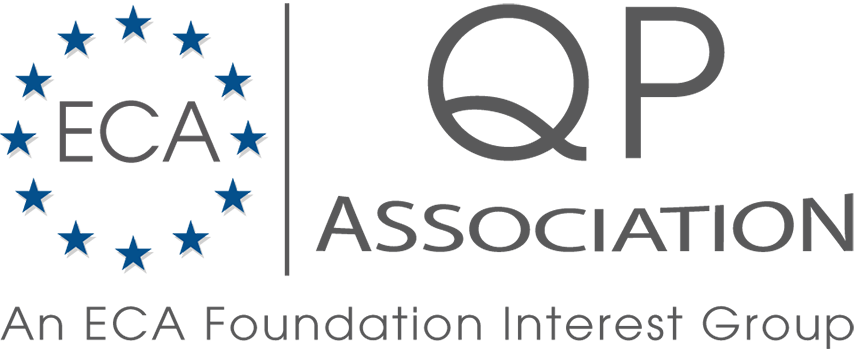|
European Qualified Person Association - Publications/Question
and Answer Documents
Q and A Document No 1: Qualified Person and API Production
Question 1: Is it required to have a QP function also for an API (bulk) manufacturer?
Answer:
The answer is no. According to the EU GMP Guide Part II for APIs, there
must be an independent quality unit and the person authorised to release
the intermediates and APIs must be specified. However, this person need
not comply with the QP regulations and may therefore not be registered
like a QP. It is required that the QP of the marketing authorisation
holder of the finished drug using this API must confirm that each API
supplier indicated in the marketing dossier has manufactured the API in
compliance with GMP, i.e. Part II of the EC GMP Guide (ICH Q7A). Should
several QPs be involved in the production process, it is sufficient to
have the confirmation of the QP who has overall responsibility for the
batch and who provides the final signature, thus certifying the batch.
However, member states may have differing national regulations that might require QPs for certain APIs. E.g. in Germany those APIs derived from a human, animal, microbiological source, and manufactured by biotech methods or if the API is used directly as a drug product requiring no additional formulation need a manufacturing licence and a QP.
Question 2: If yes,
does that mean that the whole 2001/83/EC
Directive is applicable to
API manufacturers too?
Answer:
The answer is no. Nevertheless, the Directive 2001/83/EC has a direct
impact on the API industry. The three major consequences are:
-
APIs have to be manufactured in accordance with Part II of the EC GMP
Guide: Article 46(f) of Directive 2001/83/EC obliges the holder of a
manufacturing authorisation “to use as starting materials only active
substances which have been manufactured in accordance with the detailed
guidelines on GMP for starting materials”. These are the GMPs given in
Part II of the EC GMP Guide.
-
Part II (the former Annex 18) of the EC GMP Guide becomes mandatory for
API manufacturers in the EU.
-
Inspections may be carried out at the premises of API manufacturers.
Article 111 defines that the competent authority may also carry out
inspections at the premises of manufacturers of active substances. However,
the current legislation allocates responsibility to the manufacturing
authorisation holders using the active substance and does not provide for
mandatory routine inspections of active substance manufacturers.
As the general system guarantor of a manufacturer of medicinal products,
the qualified person has to fulfil the task of implementing these
requirements.
Question 3: Can the duties of the QP, e.g. the final signature on release docs, be delegated within the company?
Answer:
Annex 16 of the EC GMP Guide defines that “each batch of finished product
must be certified by a Q.P. within the EC/EEA before being released for
sale or supply in the EC/EEA or for export”. Normally this is done by a
final signature (whether electronically or manual). When a computerised
system is used for recording certification and batch release, particular
note should be taken of the guidance in Annex 11 to the EC GMP Guide.
Nevertheless the conduct of certain checks and controls may be delegated
to others. But the Q.P. who certifies the finished product batch retains
personal responsibility for these within a defined quality system. That
means that certain activities can be delegated to other persons, but not
the responsibility. The QP has the responsibility for this delegation (he/she
has to sign the job descriptions or delegation contracts).
Question 4: Who is certifying a QP - the national health agency?
Answer:
This is defined in the laws and regulations of the member states and may
vary. Normally, this is done by one central health agency in the member
state.
In Germany e.g. the competent authority has to approve the qualification
of the QP (legal obligation). If the manufacturer does not have a QP at
his disposal, a manufacturing authorisation cannot be issued. In case of
insufficiencies detected later, the MA has to be withdrawn by the
authority. In Germany e.g. no certificates for QPs are planned.
European QP Association – Advisory Board, September 2006
<< Back to overview
|



